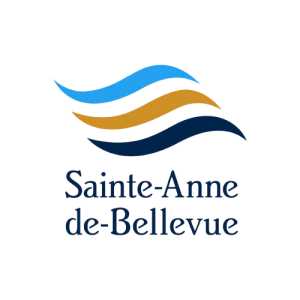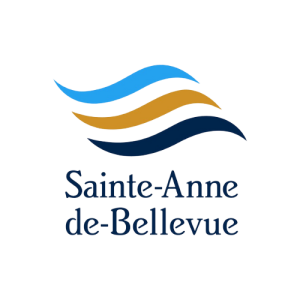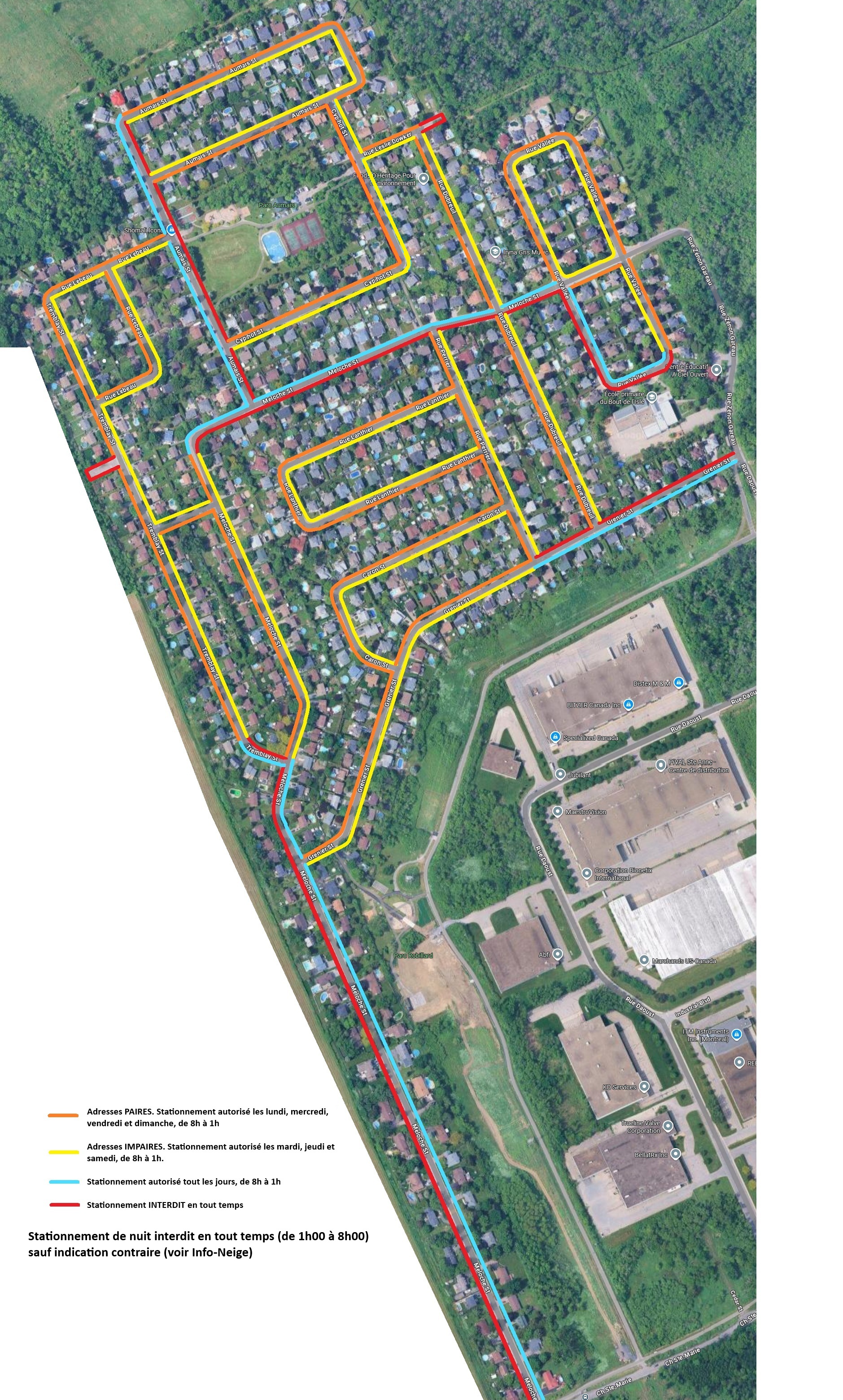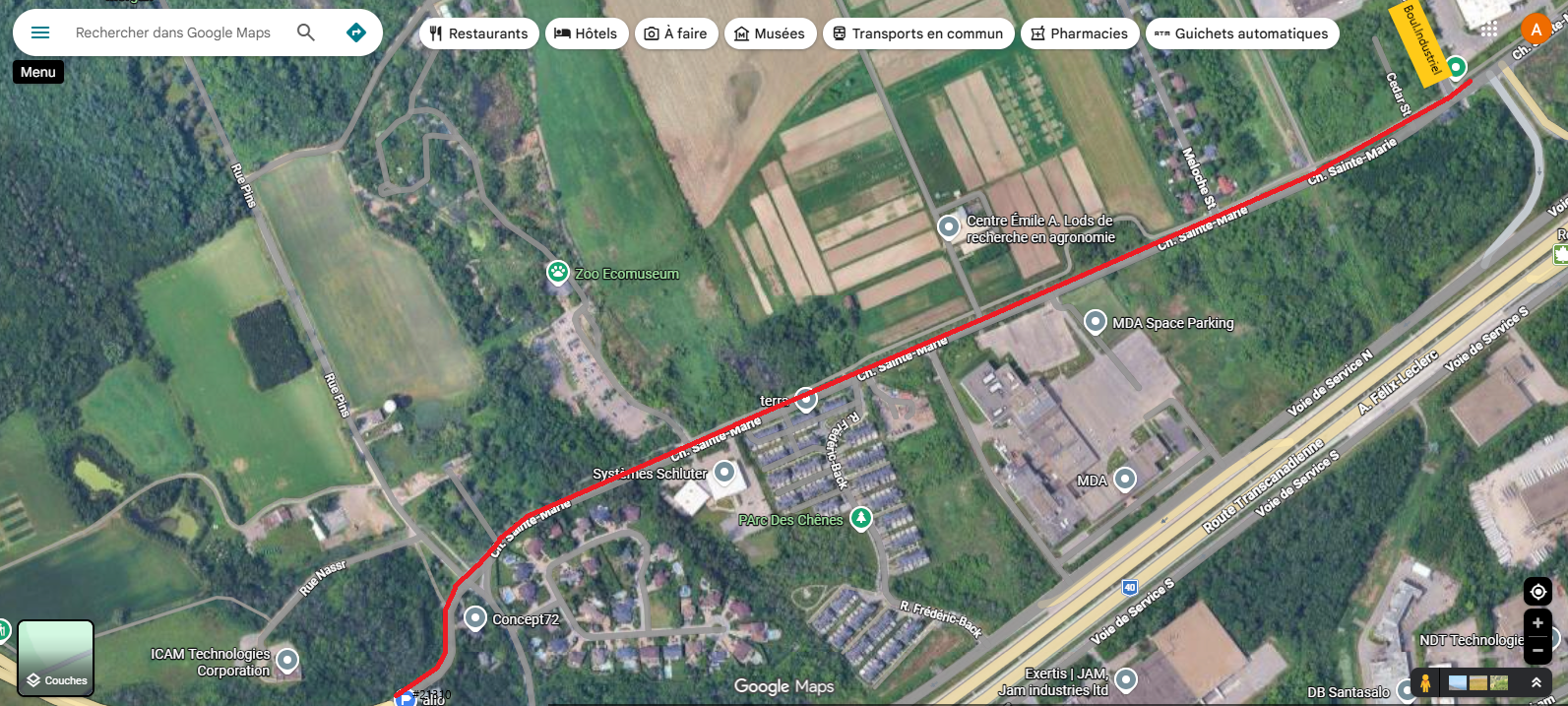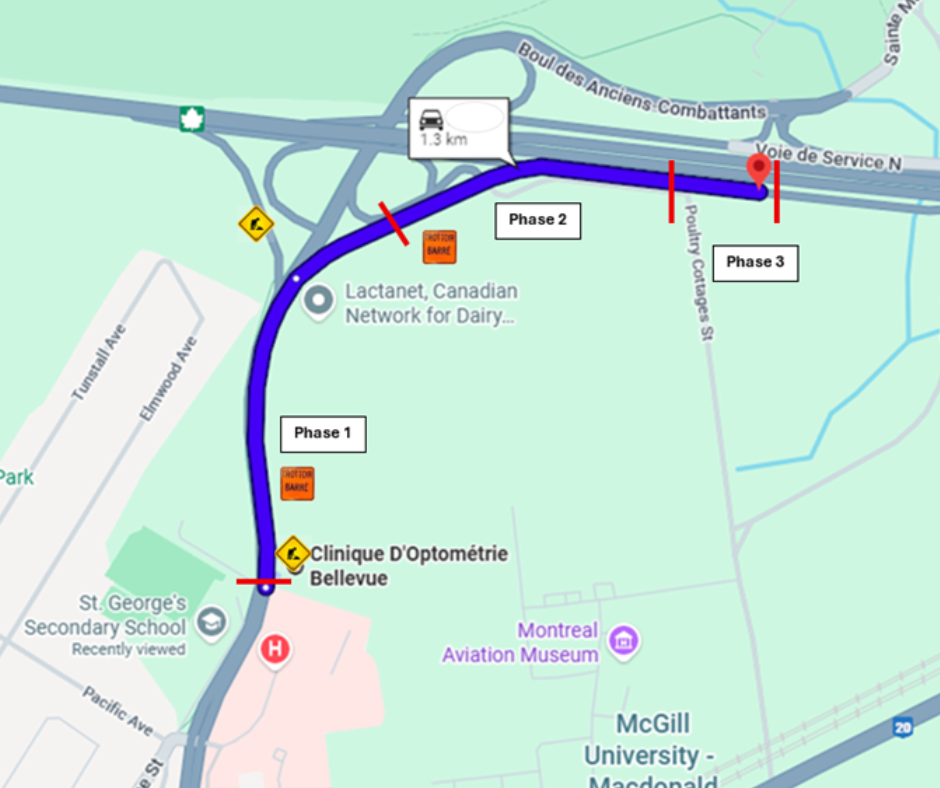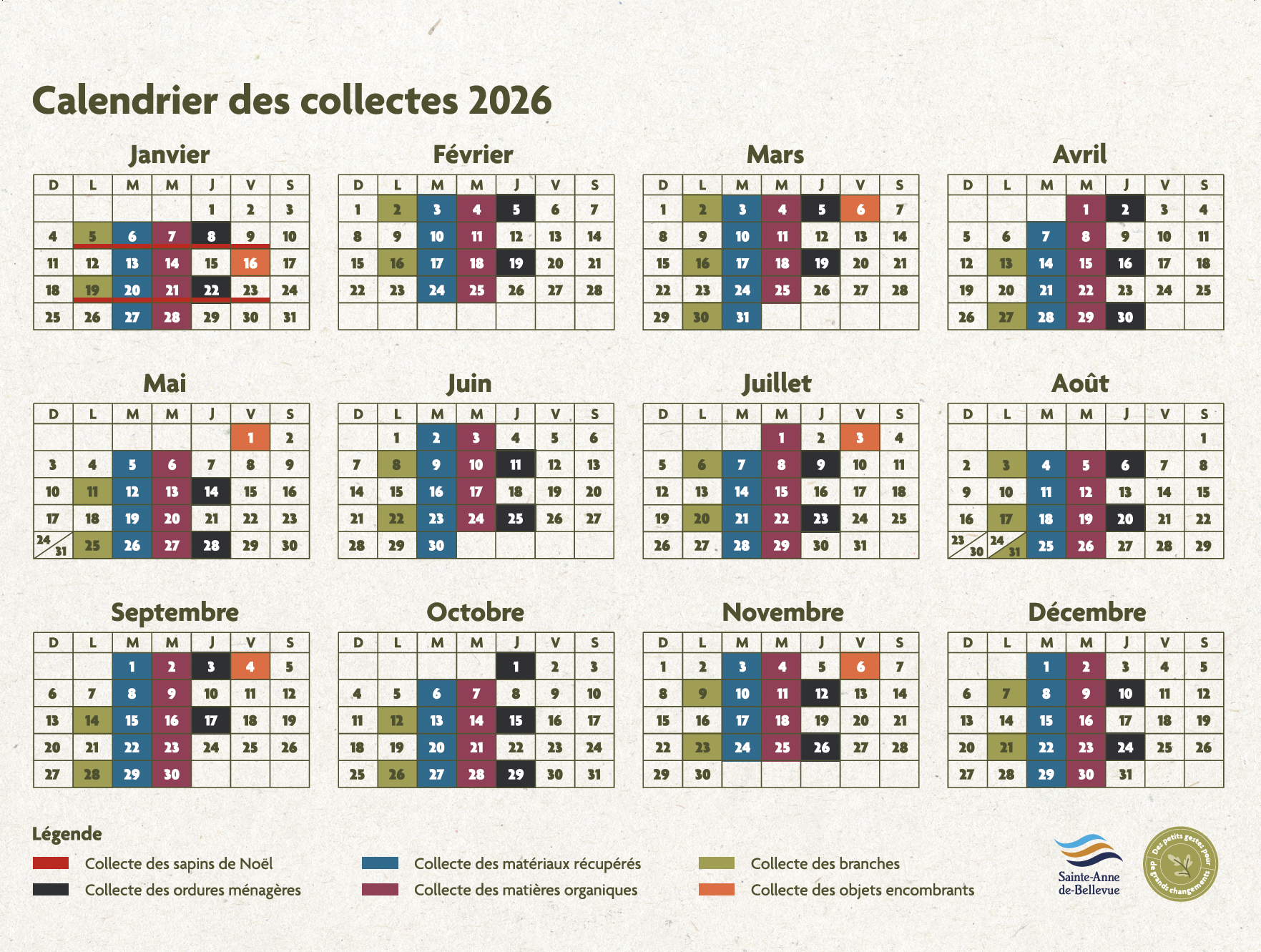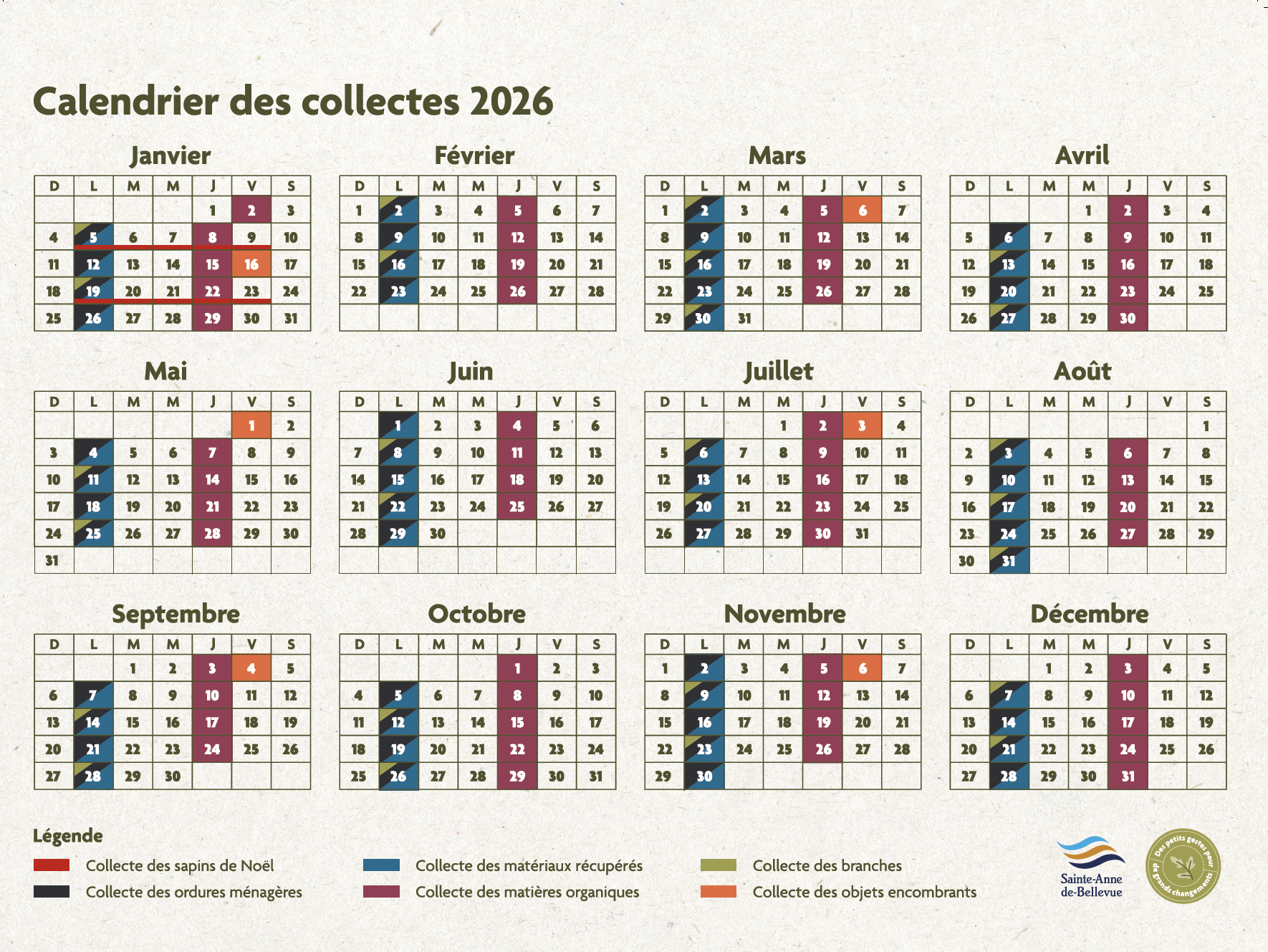Des travaux d’installation et de déploiement de fibre optique réalisés par Vidéotron auront lieu entre le 21310 chemin Sainte-Marie et le boulevard Industriel, en direction ouest.
- Du 2 mars 2026 au 13 mars 2026 ;
- De 9 h à 15 h ;
- Un signaleur sera présent en tout temps afin d’assurer le contrôle et la sécurité de la circulation ;
- La circulation se fera en alternance sur une seule voie.
Pour la sécurité de tous, veillez respecter la signalisation en place.
Merci de votre compréhension.
